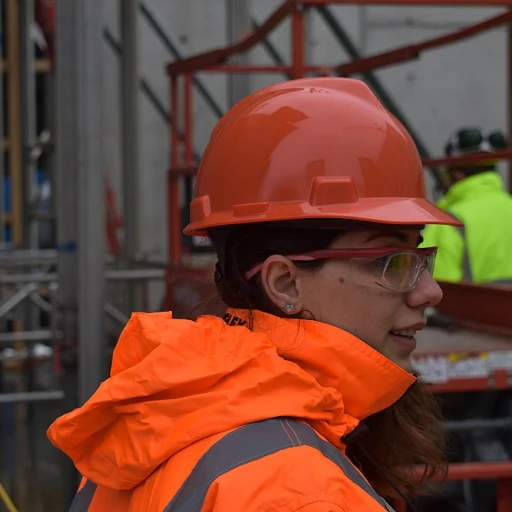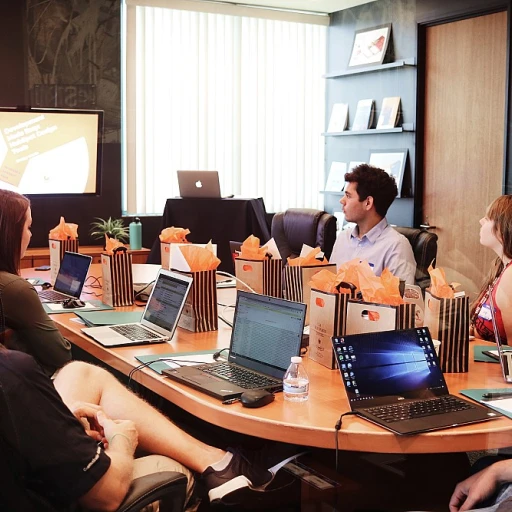
Understanding the South Plains Workforce Landscape
Understanding the workforce landscape of South Plains is crucial for any effective skills enhancement initiative. The region is home to diverse industries, each contributing uniquely to its economic fabric. From agricultural operations to burgeoning technology firms, understanding these diverse sectors' demands can inform workforce development efforts and provide effective strategies for skill enhancement.
Regional Workforce Dynamics
The South Plains region features a growing population with varied employment needs. The varied industries necessitate a wide range of skills, from technical and artisanal competencies to managerial and leadership proficiencies. Moreover, the area also requires workforce solutions that address the needs of individuals with disabilities and those from low-income families. Programs that focus on employment training not only bolster job seekers' capabilities but also align with regional economic goals.
Workforce Development Infrastructure
A key aspect of workforce planning involves leveraging existing resources like workforce solutions centers and career development boards. These entities play a pivotal role in providing job search assistance, career planning, and child care services. For instance, numerous services including health insurance and child care are integral to ensuring that individuals can pursue employment training effectively. The Texas Workforce Commission and other community programs often collaborate to facilitate access to these essential supports.
Integrating Community and Government Initiatives
Government and nonprofit organizations have made significant strides in addressing the workforce needs of the South Plains. Workforce development in this context often involves multi-stakeholder partnerships, aimed at crafting sustainable employment solutions that benefit the entire community. By focusing on the long-term viability of employment initiatives, these partnerships help alleviate challenges faced by both job seekers and employers.
Identifying Key Skills for Future Growth
Focusing on the Skills That Drive Growth
Identifying the key skills that will foster future growth in the South Plains region is crucial for both job seekers and employers. Understanding these skills can help in effective workforce development and planning. A closer look at the South Plains workforce reveals several areas where skill enhancement is necessary.- Technology Proficiency: With the rise of digital transformation, services including employment and health care are increasingly reliant on technology. Workforce solutions are focusing on increasing digital literacy among workers to keep pace with these advancements.
- Communication and Collaboration: Employers in the South Plains are seeking individuals who can effectively communicate and work collaboratively. As organizations diversify, these skills have become paramount to navigate the workforce landscape.
- Problem-Solving and Critical Thinking: These skills are essential in developing innovative solutions, particularly in sectors like housing and health care services. Employers value candidates who can contribute to problem-solving at organizational and community levels.
- Healthcare and Child Care Expertise: With an aging population and increasing demand for child care, expertise in these areas is important for job seekers. The South Plains region faces a unique challenge in ensuring qualified professionals are available to provide care services.
Challenges in Upskilling the South Plains Workforce
Addressing the Barriers to Workforce Development
Understanding the hurdles faced by the South Plains workforce is crucial in crafting effective solutions south. One of the primary challenges is the lack of awareness and access to services including job search assistance, employment training, and access to career centers. Many individuals, especially those from low income backgrounds or with disabilities, find it difficult to navigate the complexities of the workforce development system. The housing situation also presents significant barriers. High costs and limited availability in certain areas can hinder people from engaging fully in employment opportunities. Affordable child care solutions must also be part of the development planning process to ensure that parents, especially single parents, can pursue career growth without worrying about their child care needs. Work-life balance is another area requiring attention. It is essential to design flexible work environments that accommodate the diverse needs of the workforce, especially those needing health insurance, or care services for relatives. This adaptability can significantly impact job satisfaction and retention, thus contributing to the overall productivity of the regional workforce. Community initiatives backed by the Texas Workforce Commission and the collaboration with nonprofit organizations offer promising potential in overcoming these hurdles. By establishing an integrated network that supports the workforce through health insurance, transportation, child care, and job search assistance, the South Plains can better equip its workforce to thrive. The Plains Regional Development Board and other entities can leverage data-driven strategies to identify gaps and implement targeted solutions. Embracing technology in upskilling initiatives, as explored in the context of video-based training, can also mitigate some of these challenges, providing scalable, accessible learning for all. For more insights on the topic, consider exploring how video-based training can enhance skill development.Effective Upskilling Strategies
Innovative Approaches for Skill Enhancement
Upskilling the workforce in the South Plains requires the adoption of effective strategies that cater to the region's unique needs. As we strive to enhance the skills of individuals, several strategies stand out in supporting regional workforce development. First, tailoring training programs to the specific needs of the South Plains is crucial. This involves creating customized employment training programs that address the skill gaps identified in previous analyses of the workforce landscape. By aligning these programs with the anticipated economic growth trajectories and industry requirements, job seekers will be better equipped to meet future demands. Secondly, the integration of workforce solutions provided by local career centers is essential. These centers offer not only training but also comprehensive career planning services that aid individuals in navigating the job market effectively. Workforce development boards play a vital role here, bringing together employers, nonprofits, and community leaders to streamline efforts and resources. Collaboration with nonprofit organizations forms another pillar of effective upskilling strategies. These organizations often offer specialized services, including child care and health insurance, which remove barriers to participation in training initiatives for low-income individuals and those with disabilities. Furthermore, regional partnerships with the Texas Workforce Commission enhance the reach and impact of upskilling programs. These partnerships facilitate the distribution of critical resources and assistance, such as housing and child care services, ensuring that individuals can focus on their job search and skill acquisition without undue worry about basic needs. Moreover, fostering a culture of continuous learning within organizations boosts long-term workforce development. Companies in the South Plains investing in employee growth through regular training and development opportunities see improvements in employee satisfaction and productivity. In summary, effective upskilling strategies in the South Plains depend on a holistic approach that includes tailored training programs, strategic partnerships, and supportive services, ultimately empowering the community to achieve sustainable economic growth.Role of Technology in Upskilling
Integrating Technological Advancements for Enhanced Workforce Development
In today's rapidly evolving job market, embracing technology is essential for the South Plains workforce. Integrating technological tools into workforce solutions not only streamlines processes but also opens up vast opportunities for job seekers aiming to broaden their skillset. The effective use of technology facilitates workforce development by providing:- Access to Online Learning Platforms: Enterprises focusing on employment training can benefit immensely from digital solutions. These platforms offer flexibility and convenience for employees, including those with disabilities, allowing them to access learning materials anytime, anywhere.
- Enhanced Program Delivery: Workforce development boards can leverage technological advancements to tailor programs that fit the unique needs of the South Plains community. This ensures that individuals receive the right services, such as child care assistance and services aimed at low-income individuals, helping to create equitable employment opportunities.
- Improved Job Search Portals: Utilizing technology in job search efforts can connect job seekers with regional workforce centers more efficiently. This includes providing digital career centers and comprehensive services including job listings, resume building tools, and interview preparation tutorials.












